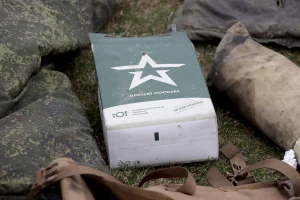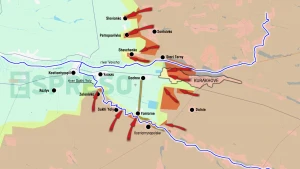
Preemptive game: who will confiscate Kremlin assets first - United States or Europe?
The fate of the "300 billion" today depends on how politically persuasive the US and UK can be, as these two countries support seizing the terrorist state's assets
The confiscation of the Russian central bank's assets in Ukraine's favor is not only about money, but also about the Ukrainian partners’ maturity. If they make this decision, it will mean only one thing: The US and the EU have compensated for the lack of resolve that accompanied them throughout the entire period of Moscow's war against Ukraine.
The Biden administration has begun urgent negotiations on the use of $300 billion in seized assets of the Russian central bank. They want to use them to help Ukraine. Congress supports the bill, and Biden wants to make a decision by February 24, 2024, according to The New York Times.
But the FT's analysis reveals a slightly different picture: the US role in this hunt for the "golden rune" is more political than real. Uncle Sam has only seized $5 billion, while €260 billion of the Central Bank of Russia's assets are frozen in the EU, Australia, Japan, and the UK. About €210 billion is kept in the EU in cash and government bonds.
And here's the catch: Europeans, especially the French, Germans, and Italians, are much more cautious than Americans in this regard. On the one hand, they are afraid of the Kremlin's response, and on the other hand, they are afraid that China or Saudi Arabia will take their money out of the EU.
Therefore, the fate of the "300 billion" today depends on the political persuasiveness of the United States and the United Kingdom, which also advocates for the seizure of terrorist state assets.
If the EU, the US, and the G7 do "raid" the Kremlin's couple of hundred "billions," it will indicate a change in the behavioral model of Ukraine's Western partners: they are ready not only to respond to Russia's aggression, but also to take the initiative... and continue to support Ukraine in its struggle for freedom and independence.
The key word for us is "if"...
I should add that this is not a plan B. These funds are expected in addition to the promised assistance from the US and EU.
About the author. Orest Sohar, journalist, editor-in-chief at Obozrevatel
The editors do not always share the opinions expressed by blog authors.
- News














































